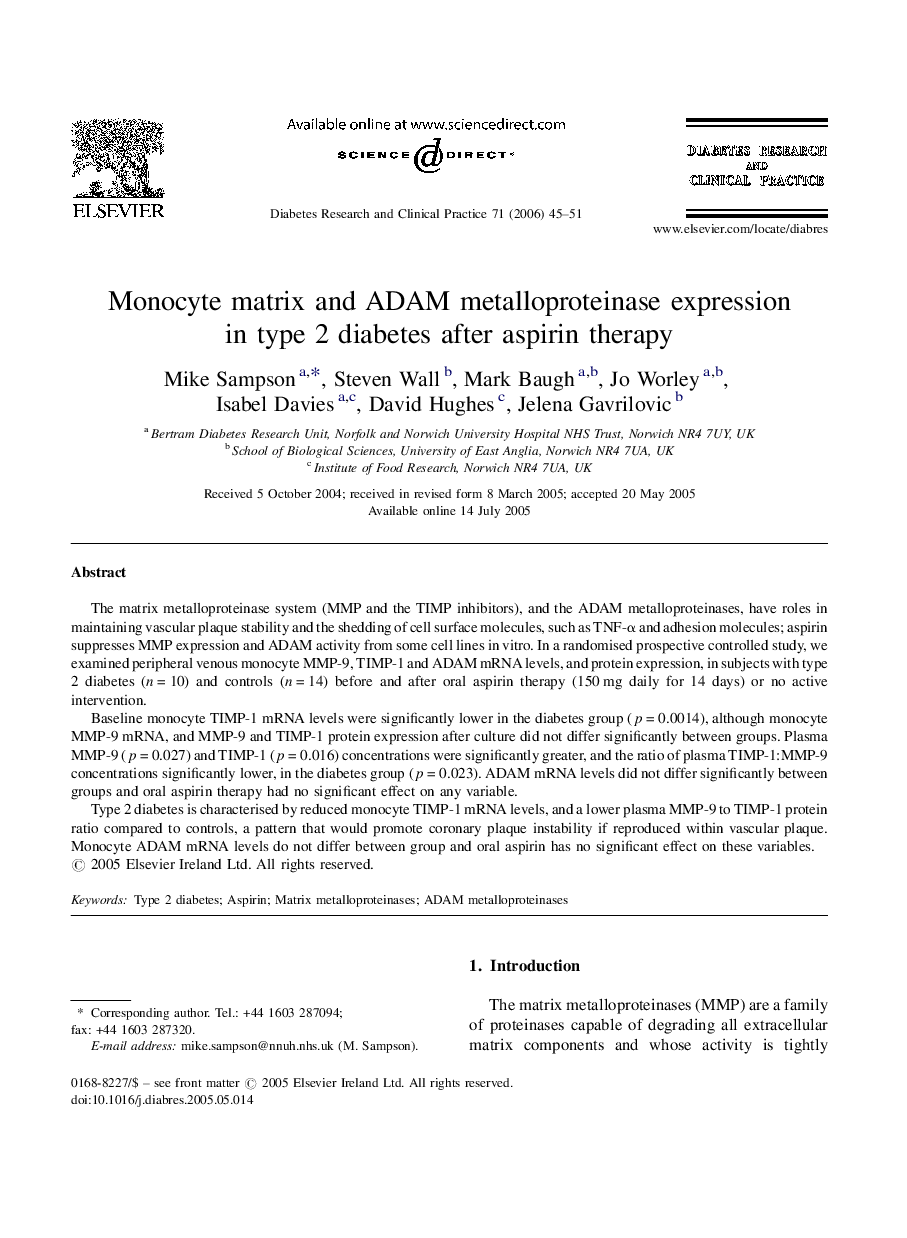| Article ID | Journal | Published Year | Pages | File Type |
|---|---|---|---|---|
| 2798952 | Diabetes Research and Clinical Practice | 2006 | 7 Pages |
The matrix metalloproteinase system (MMP and the TIMP inhibitors), and the ADAM metalloproteinases, have roles in maintaining vascular plaque stability and the shedding of cell surface molecules, such as TNF-α and adhesion molecules; aspirin suppresses MMP expression and ADAM activity from some cell lines in vitro. In a randomised prospective controlled study, we examined peripheral venous monocyte MMP-9, TIMP-1 and ADAM mRNA levels, and protein expression, in subjects with type 2 diabetes (n = 10) and controls (n = 14) before and after oral aspirin therapy (150 mg daily for 14 days) or no active intervention.Baseline monocyte TIMP-1 mRNA levels were significantly lower in the diabetes group (p = 0.0014), although monocyte MMP-9 mRNA, and MMP-9 and TIMP-1 protein expression after culture did not differ significantly between groups. Plasma MMP-9 (p = 0.027) and TIMP-1 (p = 0.016) concentrations were significantly greater, and the ratio of plasma TIMP-1:MMP-9 concentrations significantly lower, in the diabetes group (p = 0.023). ADAM mRNA levels did not differ significantly between groups and oral aspirin therapy had no significant effect on any variable.Type 2 diabetes is characterised by reduced monocyte TIMP-1 mRNA levels, and a lower plasma MMP-9 to TIMP-1 protein ratio compared to controls, a pattern that would promote coronary plaque instability if reproduced within vascular plaque. Monocyte ADAM mRNA levels do not differ between group and oral aspirin has no significant effect on these variables.
